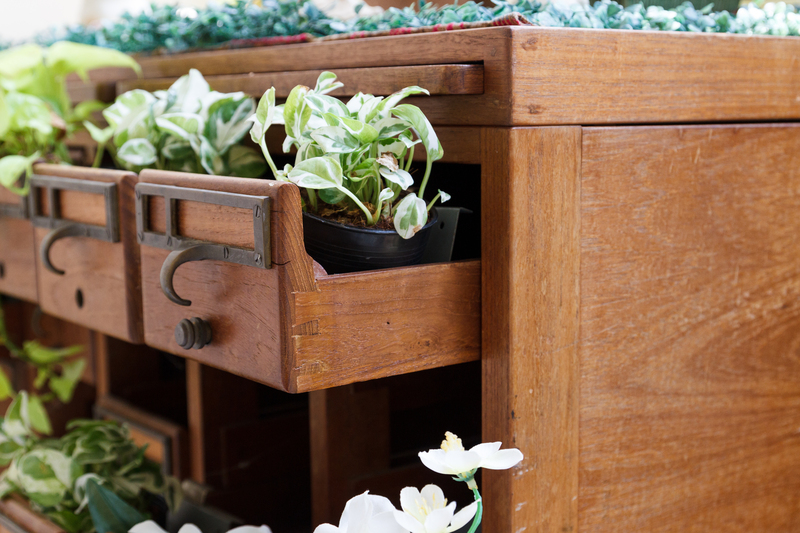Bulky Waste Items Disposal: Cost-Cutting Ideas You'll Love
Every homeowner and business owner faces the challenge of disposing of bulky waste items. Whether you are decluttering, relocating, or renovating, managing large items such as old furniture, appliances, mattresses, and construction debris can be overwhelming and costly. Many people end up spending more than necessary because they're unaware of the different cost-cutting strategies available. If you're searching for effective, cost-efficient bulky waste disposal ideas, you're in the right place!
This comprehensive guide will dive into the world of bulky waste item removal, providing money-saving tips, eco-friendly solutions, and smart alternatives to expensive professional services. Read on for actionable advice you'll love!

Understanding Bulky Waste: What Qualifies?
Before we delve into cost-cutting ideas for bulky waste removal, it's essential to know what is considered as bulky waste. Bulky waste typically includes large household items that cannot be collected via regular waste collection services.
- Furniture: sofas, beds, tables, dressers, wardrobes, chairs
- Large appliances: refrigerators, washing machines, dishwashers
- Mattresses and box springs
- Carpets, rugs, and padding
- Outdoor equipment: barbecues, lawnmowers, trampolines
- Electronic waste (e-waste): TVs, computers, monitors (local regulations permitting)
- Construction debris: doors, windows, cabinetry, drywall, and similar large items
Because of their size, weight, and sometimes hazardous components, these items require special handling, disposal fees, and occasionally disposal permits. That's why it pays to explore cost-effective options.
Why Proper Bulky Waste Disposal Matters
Improper bulky waste disposal can lead to environmental damage, health issues, and legal penalties. Municipal landfills are already overburdened. Dumping bulky items in unauthorized places is illegal and unsightly. Recycling or responsibly disposing of bulky waste gives items a second life, conserves resources, and reduces landfill waste.
Cost-Cutting Bulky Waste Disposal Ideas
Let's explore a variety of affordable bulky items disposal strategies for homes, HOAs, property managers, and businesses.
1. Donation: Give Old Items a New Life
If your unwanted items are in usable condition, consider donating them to local charities, shelters, non-profit thrift stores, or churches. Many organizations are happy to accept furniture and appliances, and some will even pick up items for free, saving you money on hauling fees.
- Benefits: Tax deductions, reduced landfill waste, and helping those in need.
- Popular Options: Goodwill, Salvation Army, Habitat for Humanity ReStore, local shelters, refugee support centers.
- Pro Tip: Call ahead or check donation guidelines to confirm what items are accepted and pick-up schedules.
2. Sell or Give Away Items Online
What's unwanted to you might be a treasure to someone else! Use online marketplaces and community platforms to sell or give away bulky items:
- Craigslist
- Facebook Marketplace
- Freecycle
- Nextdoor
With a quick photo and description, you can list furniture, appliances, or e-waste. You'll cut costs on disposal, possibly earn extra cash, and ensure your items are reused.
3. Arrange a Curbside Bulk Pickup
Many cities offer a free or low-cost curbside bulky item collection service for residents. These are typically scheduled in advance and may be limited to several items per year or charge extra for additional items.
- Tip: Check your local waste management or city website for guidelines and collection schedules. You may need to register for specific pickup dates.
- Cost: Curbside collections are often far less expensive than private junk removal, sometimes even free.
4. Use a Local Recycling Center
Most recycling centres accept bulky items -- especially metals, wood, mattresses, and e-waste. Fees are typically lower than landfill rates and some items (like electronics) are accepted for free by specialized recyclers.
- Look for county-run facilities, private recycling yards, or special "hard to recycle" events.
- Ask about separate drop-off days for appliances, scrap metal, or electronics recycling.
- Ensure items are clean, stripped of hazardous parts, and are accepted at your facility.
5. Host a Community Clean-Up or Bulky Waste Day
Organizing a neighborhood or building-wide clean-up is a great way to split costs and effort. Some municipalities provide oversized dumpster rentals or special pickup events for groups or HOAs at reduced prices.
- Coordinate dates with your city or HOA for the most cost-effective rates.
- Encourage neighbors to participate – more volume often means lower per-item costs.
- Pro tip: This is a fantastic opportunity to build community engagement!
6. Repurpose or Upcycle Bulky Items
With some creativity, many bulky items can be repurposed or upcycled. Not only do you save on disposal costs, but you may also save money on new purchases. Here are some ideas:
- Turn wooden pallets into garden beds or outdoor furniture.
- Transform an old door into a desk or a funky headboard.
- Use drawers from dressers for storage or plant containers.
- Convert an old washing machine drum into a fire pit.
Check Pinterest or YouTube for more creative upcycling tutorials!
7. Dismantle Items Yourself
Large items often incur higher fees simply because of their size. If you dismantle them (e.g., taking apart a sofa or breaking down shelves), they may fit in regular waste bins or be accepted as scrap at no extra cost.
- Disassemble furniture, separating materials like metal, wood, and fabric.
- Bag or bundle small components for easier disposal.
- Always follow safety guidelines and use proper tools!
8. Rent a Shared Dumpster With Neighbors
For multi-unit buildings, subdivisions, or office parks, renting a shared dumpster can be much more economical than hiring separate removal services. Choose the correct size, split the fee among participants, and coordinate a cleanup weekend.
- Contact local dumpster rental companies for group rates or specials on bulky waste bins.
- Double check accepted items and prohibited materials to avoid fees or issues.
9. DIY Junk Hauling: When It Makes Sense
If you have access to a truck or trailer, self-hauling bulky items to the landfill or transfer station is a solid cost-cutting solution.
- Get your vehicle weighed in/out at the landfill for fair tipping fees.
- Remember, city residents may have vouchers for a limited amount of free or discounted dumping each year.
- Bundle several loads or coordinate trips with friends and neighbors to share costs.
10. Use Professional Services ONLY When Necessary
Full-service junk removal companies are the most convenient but typically the most expensive bulky item disposal option. Save this for situations involving heavy, hard-to-move, hazardous, or prohibited items, or when you simply can't do it yourself.
- Get quotes from multiple local companies before committing.
- Ask if they donate or recycle items before disposal.
- Book during off-peak times for possible discounts.
The Hidden Costs of Bulky Waste Disposal
Understanding all associated costs with bulky waste removal helps you budget accurately and avoid surprises. Here are some cost factors to consider:
- Tipping Fees: Charged by weight or volume at landfills and transfer stations.
- Permit Fees: Required in some cities, especially for curbside pickup or dumpster rental.
- Labor Costs: For heavy items, you may need to pay for extra help or specialized movers.
- Transportation: Fuel, tolls, and wear/tear if you're hauling items yourself.
- Disposal Surcharges: Some items (like electronics, large appliances, or mattresses) may carry additional waste surcharges.
Reduce these costs by: bundling items together, prepping items for easy pickup, and making use of community programs.
Eco-Friendly and Legal Considerations
Always ensure your bulky item disposal methods are environmentally responsible and comply with local regulations. Illegal dumping can result in fines, pollute waterways, and harm wildlife.
- Check your city or county's official website for up-to-date disposal rules and preferred recycling centers.
- Verify appliance removal requirements (many have hazardous components).
- Look for "take-back" programs for electronics and hazardous waste.
Frequently Asked Questions About Bulky Waste Disposal
What is considered a bulky waste item?
Bulky waste includes any large items not accepted in your regular trash, such as sofas, beds, washers, dryers, water heaters, mattresses, bookcases, and other oversized furniture or appliances.
How can I get rid of bulky waste for free?
Use donation programs, list items on Freecycle, participate in city-organized curbside pickups, or recycle through special events. Many cities provide at least one or two free annual bulk collections for residents.
Can bulky waste be recycled?
Yes! Many items can be recycled or partially recycled. Metals, electronics, some plastics, and even mattresses can often be processed at specialized facilities. Always check with your local recycling center.
How do I save money on bulky item pick-up?
Plan ahead. Bundle pickup requests, schedule collections during "free days," donate, sell, repurpose, or share costs with neighbors. Avoid last-minute or emergency services, as these tend to be much more expensive.
Is it illegal to dump bulky items on the curb?
Yes, unless you have a scheduled pickup. Unauthorized dumping can result in fines and legal consequences. Always book official collection with your city or an approved hauler.

Key Takeaways: Bulky Waste Cost Savings Checklist
- Donate or sell usable items before paying to dispose of them.
- Utilize free city or HOA bulky waste pickups whenever available.
- Recycle or upcycle items creatively to minimize landfill waste.
- Break down large items to lower pickup/disposal fees.
- Share dumpsters or service fees with neighbors or colleagues.
- Understand local regulations to avoid fines and extra charges.
- Compare multiple options before booking a service.
Conclusion: Smarter, Cheaper Bulky Item Disposal
With a little planning, you can dramatically reduce the cost of disposing of bulky waste items. From donations and DIY solutions to community programs and creative reuse, there are affordable, eco-friendly alternatives to expensive junk removal services. Make the right choice for your wallet and the environment!
Start using these cost-cutting bulky waste disposal ideas today and discover just how simple and satisfying it can be to save money, reduce waste, and help your community.
If you found these tips useful, share them with friends or neighbors who might be facing the same bulky item challenges. Together, you can make smarter choices and keep large waste out of the landfill -- without breaking the bank.
